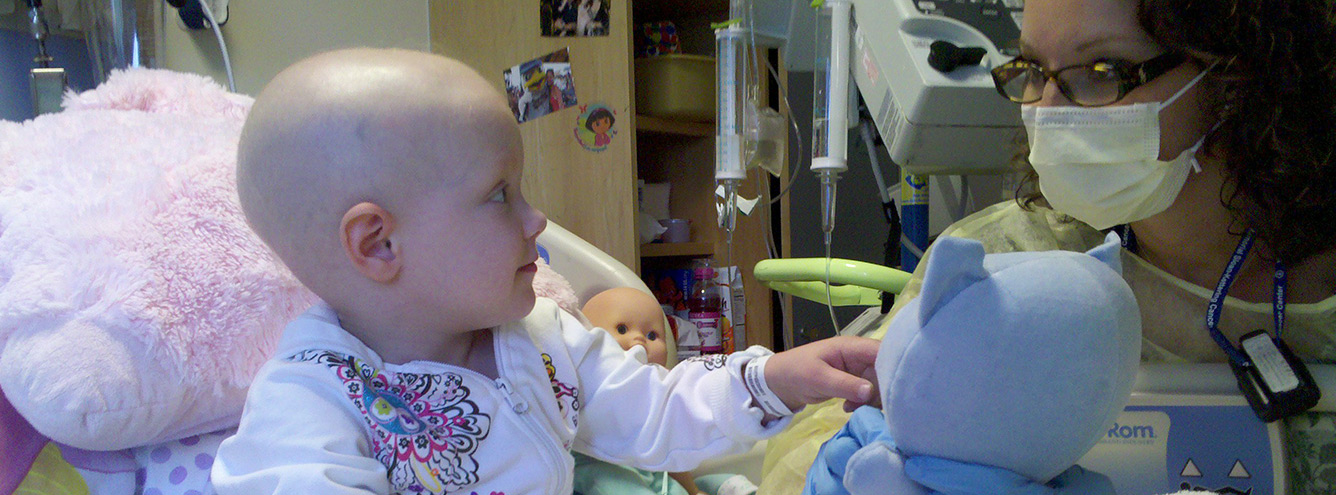Caring for the Whole Child
Cancer treatment is a stressful and potentially traumatic experience that can overwhelm a child’s natural ability to cope. This can delay healing and normal development, with lasting negative effects on their physical and mental health.
Treatment requires both killing the cancer or minimizing symptoms, and caring for the child’s complete well-being, to ensure best possible quality of life. Cure will be a very hollow success if your child is unable to emerge from treatment with a positive outlook and joy for his life saved.
Child life helps children manage stressful experiences, giving them the best possible quality of life during treatment and beyond. Whatever your child’s age or stage of treatment, child life interventions can make a significant difference to his well-being.
Child life can directly impact the cost of medical care. For example, preparing a child for radiotherapy can eliminate the need for daily anaesthetic. Healthy spirits can accelerate recovery and discharge, even help boost the immune system. These benefits collectively reduce the toll of stress on the affected child, parents and siblings, and reduce financial burdens.
Many hospitals now employ Certified Child Life Specialists (CCLS) to support children through procedures and treatment. However, you can use many simple child life approaches to help your child through his cancer experience.
Child life is not an optional extra for your child. Improving his treatment experience and wellbeing will help him move forward through life as a happy, confident individual.
Using play, preparation, education and self-expression activities, Child life helps children of all ages cope with medical experiences and traumatic life events..
The goal of child life is maximum time spent on preparation, minimum time spent on the actual procedure, and minimal distress for parent and child.
Child life approaches help children change their experience of pain by altering the way the brain interprets sensations. Parents can use these techniques at home and in the hospital.
There are many ways you can support and empower your child with a special eye, at home, in public and at the ocularist’s office or hospital.
Children are amazingly resilient. But they do need lots of support in dealing with treatment or life after retinoblastoma. There is much you can do to help your child cope and thrive.


